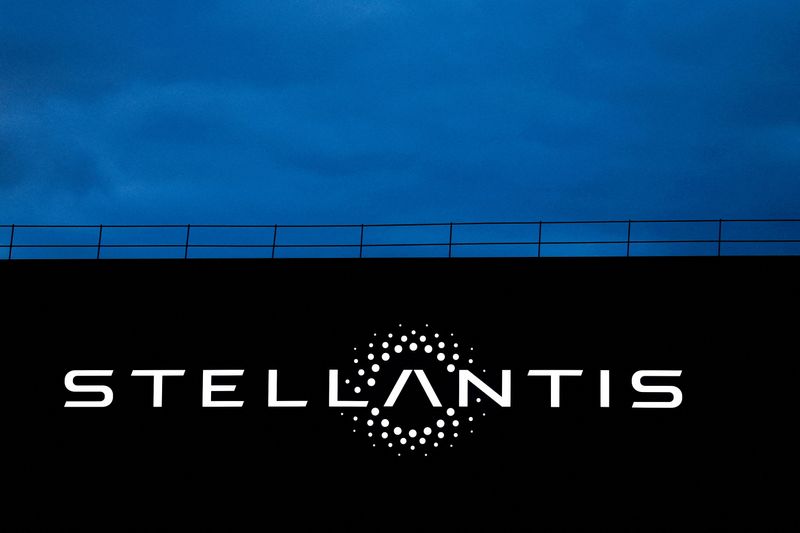ANCHORAGE, Alaska (AP) — Sean Stick and his wife were forced to leave a long-running hotel room for the streets of Anchorage after their rent hit $800 a month. Now they live in a tent near a train station, and as winter approaches in Alaska they are desperate and afraid of what lies ahead.
A proposal last week by Anchorage Mayor Dave Bronson to buy one-way airline tickets from Alaska’s largest city for its homeless residents provided a much-needed glimmer of hope. It will move to the relative warmth of Seattle.
“I hear it’s probably warmer than this place,” said Stick, who is Alliot.
But the idea of an unfunded mayor has also come under immediate attack as a Band-Aid solution that sheds light on the massive, still unaddressed, crisis facing the city of Anchorage as its swelling homeless population struggles to survive in a unique and extreme environment. Freezing temperatures stalk homeless people in the winter and bears sneak into homeless camps in the summer.
A record eight people died from exposure while living outside last winter, and this year is expected to be worse after the city closed a plaza that once housed 500 people during the winter months. A rift between the city’s liberal council and its conservative mayor over how to handle the crisis, and a lack of government funding, has further frustrated efforts to find a solution.
With winter fast approaching in Alaska, “it’s time for local and state leaders to address the underlying causes of homelessness — plane tickets are a distraction, not a solution,” the American Civil Liberties Union of Alaska said in a statement to the Associated Press.
About 43% of Anchorage’s population of more than 3,000 homeless people are Alaskan Native. Bronson’s proposal also drew strong criticism from those who called it culturally insensitive.
The truth is that there is no place to send these people because this is their land. Any policy we take must give credence to this simple truth. Christopher Constant, president of the Anchorage Assembly, said, “This is lowland land, this is Indigenous land. And so we can’t support policies that would take people and displace them from their homes, even if their home isn’t what you or I’ll call home.”
Bronson’s proposal to fly is the culmination of a turbulent few years as Anchorage, like many cities in the western United States, struggles to deal with a growing homeless population.
In May, the city closed the 500-bed homeless shelter in the town square so it could be used again for concerts and hockey games after neighbors complained about drug use, trespassing, violence, and littering. A plan to build a large shelter and navigation center fell through when Bronson accepted a contract without approval from the Anchorage Association.
This leaves a huge hole in the city’s ability to house the thousands of homeless people who must deal with temperatures well below zero for days at a time and the fierce winds that blow into Cook Inlet. At the end of June, the homeless population of Anchorage was estimated at just over 3,150 people, according to the Anchorage Coalition to End Homelessness. Last week, there were only 614 beds in shelters citywide, with no vacancies.
New tent cities are popping up across Anchorage this summer: on a slope facing the city’s historic railroad depot, on a busy road near Joint Base Elmendorf Richardson and near soup kitchens and shelters downtown.
The association’s members are due to consider an option for a winter stop in August that doesn’t quite meet the need: a large, warm tent-like structure for 150 people.
Summer brings its own challenges: Last year, hungry bears roamed a city-owned campground where the homeless were resettled after the yard closed. Wildlife officials killed four bears after they broke into tents.
Bronson said he would rather spend a few hundred dollars per person for a plane ticket than spend about $100 a day to house and feed them. He said he didn’t care where they wanted to go; His job is to “make sure they don’t die on the streets of Anchorage.”
It is not clear if his proposal will go forward. There is not yet a plan or source of funding.
Dr. Ted Malla, an Inupiak resident who in 1990 became the first Alaskan to serve as the state’s health commissioner, said Anchorage should work with social workers and law enforcement to discover individual causes of homelessness and connect them to resources.
Buying an unprotected ticket to another city is a political game that has been around for years. A number of US cities grappling with homelessness, including San Francisco, Seattle and Portland, Oregon, have also offered bus or plane tickets to homeless residents.
“People are not pawns, they are people,” Mala said.
While the mayor’s proposal focuses on warmer cities, it would also fund tickets to other locations in Alaska for those who want them.
Clarita Clark is left homeless after her medical team wants her to move from Point Hope to Anchorage for cancer treatment because Anchorage is getting warmer. The medical facility wouldn’t allow her husband to stay with her, so they pitched a tent in a sprawling campground to stay together.
After the recently found dead body of a teenager who overdosed in a portable toilet, Clarke longs to return to the coastal village of Point Hope in the Chukchi Sea, where her three grandchildren live.
“I have a family that loves me,” she said, adding that she would use the ticket and seek treatment closer to home.
Danny Parish is also leaving Alaska, but for another reason: he’s tired.
Parish has been selling his home of 29 years because it’s located directly across the street from Sullivan Arena. He said the misdeeds of some homeless people — including harassment, throwing bottles of vodka in his yard, poisoning his dog and using his driveway as a toilet — made his life a “holy hell.”
Parrish is convinced the yard will be used again this winter because there is no other plan.
He, too, hopes to move to the neighboring United States—Oregon, for a start—but not before asking the Anchorage captains for his own plane ticket.
“If they’re going to give it to anyone else, they should give me one,” Parrish said.



